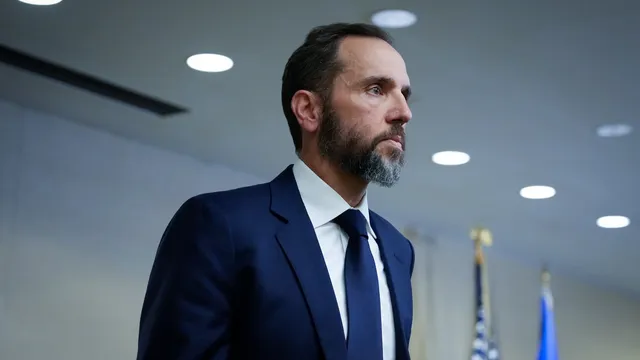
Trump demands Merrick Garland block Smith's controversial report
2025-01-10 19:15- Attorney General Merrick Garland aims to release Jack Smith's report once legally permissible.
- A federal judge has temporarily blocked the report's release pending further court decisions.
- The legal disputes surrounding the report exemplify the contentious political environment as Trump's presidency approaches.
Express your sentiment!
Insights
In the United States, Attorney General Merrick Garland has indicated that he intends to make the report prepared by Special Counsel Jack Smith available to congressional leaders and the general public, provided that the courts permit it. Garland's communications to the House and Senate Judiciary Committee chairs outlined how he aims to share confidential information regarding the classified documents case and the volume addressing Trump's alleged efforts to interfere with the 2020 election process. He expressed his belief that the public interest would ultimately be served by releasing both sections of the report, especially once ongoing criminal proceedings involving Trump's co-defendants have concluded. The Justice Department currently faces legal challenges surrounding the release of Smith's report. A federal judge has issued a temporary block on its publication due to pending decisions by an appeals court concerning ongoing legal battles related to Trump's classified documents case. This ruling is significant as it leaves the matter of the report's release in the hands of the Eleventh Circuit Court of Appeals while underscoring the ongoing legal tug-of-war over the perceived transparency of this high-profile investigation. Smith has been conducting investigations into Trump's handling of classified documents and actions related to the 2020 election for several months. With both criminal cases dismissed, the focus is now on the report detailing why charges were or were not pursued. Trump's attorneys argue that the report is biased and should not be released, reinforcing the tension between the former administration and the current Justice Department. As Smith prepares to finalize his report before Trump's inauguration, the upcoming legal decisions may shape whether the findings will be made public, impact the nature of the political landscape surrounding Trump's presidency, and influence public perception of the events that transpired during his term in office. The Justice Department seeks to navigate these legal complexities while maintaining a semblance of transparency in their proceedings.
Contexts
In the era of political turmoil, the legal battles faced by former President Donald Trump became a focal point of national interest. The ongoing investigations into classified documents and allegations of election interference set the stage for a drama that seemed to unfold like a scripted play. To some, Trump represented a figure unjustly under siege, while others viewed the legal scrutiny as a necessary process of accountability. Amidst this, voices echoed proclaiming Trump’s innocence, arguing that procedural injustices clouded the realities of his situation. As discussions emerged about the timing of potential revelations, many speculated that Trump was waiting for the right moment to present evidence that could shift the narrative in his favor. This timing, they argued, depended on the public's perception of his actions since stepping away from the presidency. The wait was not just strategic; it was a test of patience, as Americans absorbed the implications of leadership amidst growing uncertainties in national governance. Complications arose when legal claims challenged the legitimacy of the investigations. A Trump-appointed judge, Aileen Cannon, temporarily blocked a report regarding the classified documents, raising questions about how judicial processes intertwined with political motives. Meanwhile, special counsel Jack Smith faced obstacles as prosecution hopes appeared dimmed by a Supreme Court ruling granting sweeping immunity to former presidents, effectively limiting the scope of potential trials before the looming elections. Despite tumultuous legal proceedings, Trump remained a figure of resilience to his supporters. The public debate continued: Was he a victim of political machinations or a leader navigating the storm of accountability? As the clock ticked down to future election cycles, the interplay of law, politics, and public perception remained in a tenuous balance.